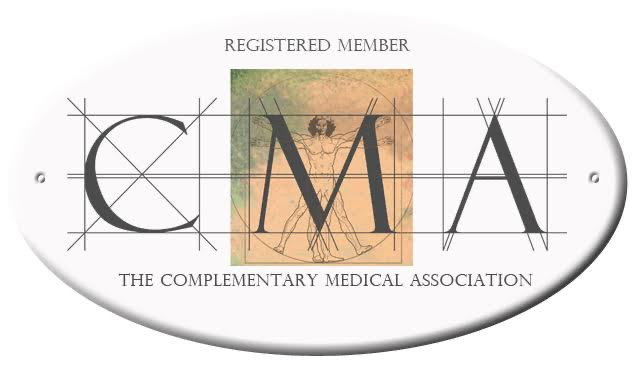Improve Mood
Use Food to Boost Mood
Diet really can help put you in a good mood. You can choose what to eat and drink to encourage good feelings or bad moods and/or mild depression.
While certain diets or foods may not ease depression (or put you instantly in a better mood), they may help as part of an overall treatment plan. There's more and more research indicating that diet influences mood. Basically the science of food's affect on mood is based on this: Dietary changes can bring about changes in our brain structure (chemically and physiologically), which can lead to altered behavior.
Follow the nine suggestions below. Try to incorporate as many as possible, because regardless of their effects on mood, most of these changes offer other health benefits as well.
1. Gut Health
Changing gut bacteria through diet affects brain function.
Research studies have proven that bacteria ingested in food can affect brain function in humans. It has been found that those who regularly consume beneficial bacteria known as probiotics through fermented foods showed altered brain function, both while in a resting state and in response to an emotion-recognition task.
We've known the brain sends signals to the gut, which is why stress and other emotions can contribute to gastrointestinal symptoms. Studies now show that signals travel the opposite way as well, via the vagus nerve. The gut–brain connection is a two-way street.
The old sayings 'you are what you eat' and 'gut feelings' take on new meaning. Patients often say they never felt depressed or anxious until they started experiencing problems with their gut.
So daily probiotic consumption is imperative - fermented foods such as vegan yogurt, kefir, sauerkraut, tempeh, tamari sauce, kombucha, natto etc...
2. Don't Banish Carbs -- Just Choose 'Smart' Ones
The connection between carbohydrates and mood is all about tryptophan, a nonessential amino acid. As more tryptophan enters the brain, more serotonin is synthesized in the brain, and mood tends to improve. Serotonin, known as a mood regulator, is made naturally in the brain from tryptophan with some help from the B vitamins. Foods thought to increase serotonin levels in the brain include, turkey, almonds, avocado, fish and vitamin D.
Here's the catch, though: While tryptophan is found in almost all protein-rich foods, other amino acids are better at passing from the bloodstream into the brain. So you can actually boost your tryptophan levels by eating more carbohydrates; they seem to help eliminate the competition for tryptophan, so more of it can enter the brain. But it's important to make smart carbohydrate choices like whole grains, fruits, vegetables, and legumes, which also contribute important nutrients and fiber.
So what happens when you follow a very low carbohydrate diet? According to researchers from Arizona State University, a very low carbohydrate (ketogenic) diet was found to enhance fatigue and reduce the desire to exercise in overweight adults after just two weeks.
3. Get More Omega-3 Fatty Acids
In recent years, researchers have noted that omega-3 polyunsaturated fatty acids (found in fatty fish, flaxseed, and walnuts) may help protect against depression. This makes sense physiologically, since omega-3s appear to affect neurotransmitter pathways in the brain. Past studies have suggested there may be abnormal metabolism of omega-3s in depression, although some more recent studies have suggested there may not be a strong association between omega-3s and depression. Still, there are other health benefits to eating fish a few times a week, so it's worth a try. Shoot for two to three servings of fish per week.
4. Get Enough Vitamin D
Vitamin D increases levels of serotonin in the brain. Individual differences that determine how much vitamin D is ideal are based on where you live, time of year, skin type, level of sun exposure.
People who suffer from depression, particularly those with seasonal affective disorder, tend to improve as their vitamin D levels in the body increase over the normal course of a year. 10 - 15 minutes sun exposure per day will give you approx. 3,000 international units (IU) of vitamin D. Or you can take Vitamin D3 as a supplement.
5. Keep Exercising and Lose Weight (Slowly)
There is a strong link between depression and obesity, lower physical activity levels, and a higher calorie intake. Even without obesity as a factor, depression was associated with lower amounts of moderate or vigorous physical activity. In many cases, depression feeds the obesity and vice versa.
Slow weight loss can improve mood. Fad dieting isn't the answer, because cutting too far back on calories and carbohydrates can lead to irritability. And if you're following a low-fat diet, be sure to include plenty of foods rich in omega-3s (like fish, ground flaxseed, higher omega-3 eggs, walnuts, and canola oil.)
6. Move to a Mediterranean Diet
The Mediterranean diet is a balanced, healthy eating pattern that includes plenty of fruits, nuts, vegetables, cereals, legumes, and fish - all of which are important sources of nutrients linked to preventing depression.
A recent Spanish study, using data from 4,211 men and 5,459 women, showed that rates of depression tended to increase in men (especially smokers) as folate intake decreased. The same occurred for women (especially among those who smoked or were physically active) but with another B-vitamin: B12. This isn't the first study to discover an association between these two vitamins and depression.
Researchers wonder whether poor nutrient intake may lead to depression, or whether depression leads people to eat a poor diet. Folate is found in Mediterranean diet staples like legumes, nuts, many fruits, and particularly dark green vegetables. B12 can be found in all lean and low-fat animal products, such as fish and low-fat dairy products.
7. Eat a Balanced Breakfast
Eating breakfast regularly leads to improved mood, along with better memory, more energy throughout the day, and feelings of calmness. It stands to reason that skipping breakfast would do the opposite, leading to fatigue and anxiety. And what makes up a good breakfast? Lots of fiber and nutrients, some lean protein, good fats, and whole-grain carbohydrates.
8. Select Selenium-Rich Foods
There is an association between low selenium intake and poorer mood. Selenium supplementation of 200 micrograms a day for seven weeks can improve mild and moderate depression.
Foods rich in selenium are foods we should be eating anyway such as:
Seafood (oysters, clams, sardines, crab, saltwater fish and freshwater fish)
Nuts and seeds (particularly Brazil nuts)
Lean meat (lean pork and beef, skinless chicken and turkey)
Whole grains (whole-grain pasta, brown rice, oatmeal, etc.)
Beans/legumes
Low-fat dairy products
9. Don't Overdo Caffeine
In people with sensitivity, caffeine may exacerbate depression. (And if caffeine keeps you awake at night, this could certainly affect your mood the next day.) Those at risk could try limiting or eliminating caffeine for a month or so to see if it improves mood.




